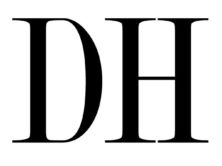
Business and editorial content parting ways? iMediaEthics illustration. (Photo by Jukka Zittingvia FLickr)
The UK Telegraph is defending its coverage two days after chief political commentator Peter Oborne publicly resigned and accused the paper of allowing advertisers to “influence” content.
“This newspaper makes no apology for the way in which it has covered the HSBC group and the allegations of wrongdoing by its Swiss subsidiary, allegations that have been so enthusiastically promoted by the BBC, the Guardian and their ideological soulmates in the Labour Party,” the Telegraph wrote in a Feb. 19 column. “We have covered this matter as we do all others, according to our editorial judgment and informed by our values. Foremost among those values is a belief in free enterprise and free markets.”
Oborne slammed the Telegraph Tuesday in a lengthy piece published on Open Democracy. He claimed the paper’s reporting on HSBC was “a fraud on its readers.” The Telegraph responded in a statement to iMediaEthics the same day as Oborne’s column calling his claims “an astonishing and unfounded attack, full of inaccuracy and innuendo.”
Despite its defense, the paper announced in today’s editorial that it is creating transparency guidelines for the division between editorial and business to ensure its “bond” to readers.
“We are drawing up guidelines that will define clearly and openly how our editorial and commercial staff will co-operate in an increasingly competitive media industry, particularly in digital publishing, an area whose journalistic and commercial importance can only grow,” the Telegraph stated.
iMediaEthics has asked the Telegraph for more information about the guidelines.
The paper added, “No subject, no story, no person and no organisation is off-limits to our journalists. They will follow the facts without fear or favour and present the results of their work to you solely on their journalistic merits, according to their sound editorial judgment and no other consideration. That is the process that revealed the MPs’ expenses scandal, the allegations against HSBC in Jersey and countless other stories of the greatest public interest. That is how we will continue to serve our readers.”
In the editorial, the Telegraph also criticized its fellow UK media outlets. The paper said it didn’t want any “lectures about journalism” from the BBC, the Guardian or the Times, and criticized them for not covering the Telegraph‘s 2009 reporting on Parliament members’ expenses.
“Those media outlets that are this week sniping about our coverage of HSBC were similarly dismissive in 2009 when we began to reveal details of MPs’ expenses claims, a fact that speaks volumes about their judgment and partiality,” the Telegraph claimed.
The Telegraph went on to issue a blanket statement against the media:
“For the avoidance of any doubt, we have no regard for the opinions of rival media organisations. None is the paragon of moral or journalistic virtue that their criticisms this week might suggest. All have their own self-serving agendas, both political and commercial.”
Dominic Ponsford, the editor of the Press Gazette, pointed out that comments were blocked on today’s Telegraph column.
Telegraph not currentlyallowing reader comments on its strident HSBC/Oborne row leader column http://t.co/0E3WdVwyq1
— Dominic Ponsford (@Domponsford) February 19, 2015






Comments Terms and Conditions